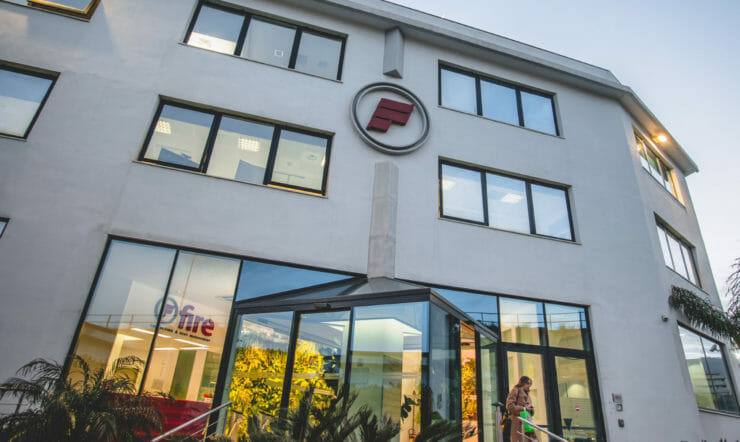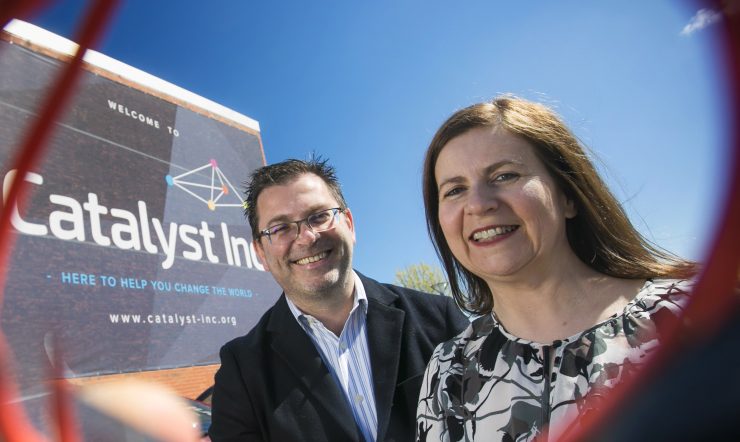Why data is key to successful digital transformation.
The business-focused session at our upcoming Microsoft event – ‘Winning Trust – Enabling Transformation’ – will look at how organisations need to become data-driven to succeed
New technology has given us the ability to access and interpret data in new ways. The trick is to identify strategic goals and the right infrastructure investments to make it work for your business. Putting data at the centre of a business means liberating it from finance and compliance and building privacy into the culture of the organisation, making everyone take a degree of responsibility for how it is collected, managed and used
The speed of technological change is nothing new but the emergence of cloud, Big Data and AI is something very different, an inflection point that will not only disrupt businesses but also have a profound impact on society. There’s even speculation that the pace of change could start to impact human behaviour and the way we interact with the world.
For businesses, the choices are binary and stark. You either adopt these new technologies or risk extinction. Most organisations understand the landscape has changed and have embarked on digital transformation strategies that leverage new technology to reinvent business processes. We talk at Microsoft about four pillars: engaging customers, enabling employees, optimising operations and transforming products.
If you are aspiring to innovate as a business and compete effectively in what the World Economic Forum calls the Fourth Industrial Revolution, you will have to affect one or more of these pillars in a tangible way.
Using digital tools
Data is at the heart of successful digital transformation. For organisations still struggling with GDPR and their regulatory requirements, it might be hard to envisage data as an engine for change. High-level talk about AI and machine learning algorithms only adds to the confusion and it’s no wonder that some Irish businesses are feeling woefully unprepared for a fast unfolding future.
The good news is that it’s not nearly as daunting as it appears and you may be further along the path than you realise, particularly if you are over the hump with GDPR. At next month’s summit we will show how far some Irish organisations have come and provide a roadmap for those just starting out.
New technology has given us the ability to access and interpret data in new ways. The trick is to identify strategic goals and the right infrastructure investments to make it work for your business. It could be as simple as the here-and-now tools we’re already seeing on social media platforms that help gauge customer sentiment. Or it could be a first foray into AI. In a live demo with the BotBuilder development kit, we will show how quick and easy it is to create a chatbot.
We will demystify the technologies and challenge preconceptions. AI is not about replacing people as ‘robots taking our jobs’ scare stories would have us believe. It’s about making us more effective in what we do, protecting us from the digital deluge and giving us back our most precious commodity – time.
Developing an innovation culture
We will also explore another important stepping stone on digital transformation journeys at the event – culture change. Putting data at the centre of a business means liberating it from finance and compliance and building privacy into the culture of the organisation, making everyone take a degree of responsibility for how it is collected, managed and used.
This is one aspect of having a digital culture. Another is embedding innovation into the fabric of an organisation, something that can prove more challenging than using the technology. Recent Microsoft research revealed that a digital culture was the main missing ingredient in the process of digital transformation. Around 84 per cent of Irish employees say they work in an organisation with a weak digital culture and alarmingly, 90 per cent of Irish employees reported low innovation in their organisation.
There’s no magic switch to change a culture, just as there are no short cuts to leveraging new technologies like AI to become more competitive. There are, however, clear paths to take that will help achieve both goals more quickly. Join us on 20th September to explore some of them.
Paul Shanahan
Intelligent Cloud Business Group Lead
























